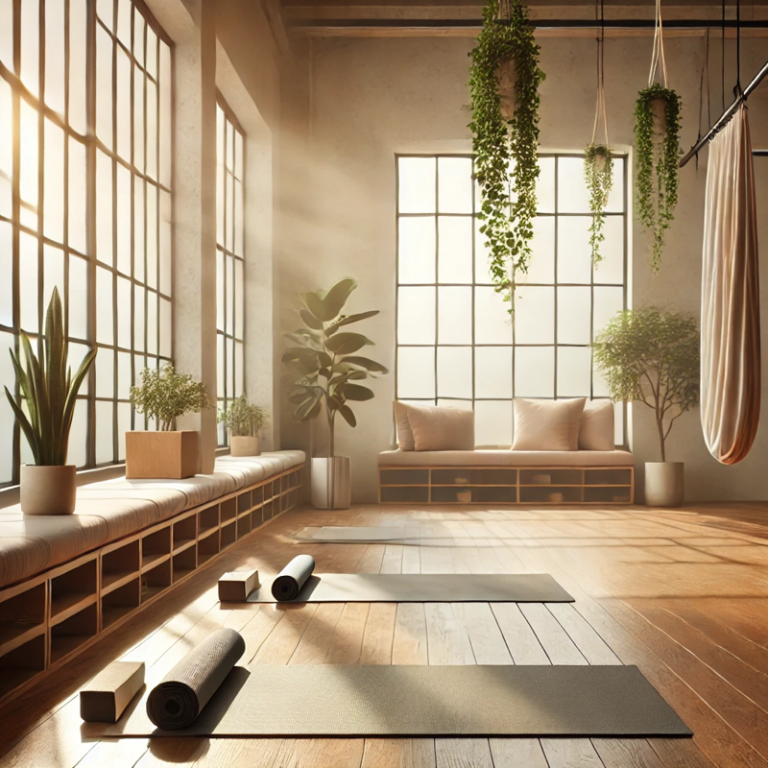Introduction: Why Choosing the Right Yoga Mat Matters
The Impact of a Premium Yoga Mat on Your Practice
A high-quality yoga mat is an essential tool that directly impacts alignment, joint protection, traction, and comfort. For both beginners and seasoned practitioners, a well-designed mat can foster consistency, reduce injury risk, and enhance postural integrity during every session—from restorative poses to high-intensity Vinyasa flows.
Potential Drawbacks of an Inappropriate Yoga Mat
Using an unsuitable or poor-quality yoga mat can cause discomfort, slipping, instability, and rapid wear—especially under regular practice conditions. This not only disrupts concentration but can also increase the risk of joint strain or long-term injury. Selecting a mat that aligns with your physical needs and practice intensity is a critical investment in your wellness journey.
Common Yoga Mat Materials: Expert Evaluation of Pros and Cons
PVC (Polyvinyl Chloride)
PVC mats are highly durable and provide excellent grip and cushioning. However, they are non-biodegradable and not ideal for eco-conscious users. PVC is suitable for practitioners seeking affordability and longevity but should be avoided if sustainability is a priority.
TPE (Thermoplastic Elastomer)
TPE is a popular alternative for those seeking a balance between performance and environmental responsibility. It is lightweight, non-toxic, and recyclable, making it an excellent mid-range option for yogis who value comfort and moderate durability.
NBR (Nitrile Butadiene Rubber)
NBR mats offer substantial cushioning, making them ideal for restorative yoga or individuals with joint sensitivities. However, they have lower tensile strength and may not withstand dynamic movements, making them less suitable for advanced or rigorous practices.
Natural Rubber
Natural rubber mats offer premium grip, resilience, and eco-friendliness. They are heavier but ideal for intense practices like Ashtanga or Bikram yoga. These mats often feature open-cell structures that enhance sweat absorption and traction.
Natural Materials: Cotton, Jute, and Cork
These biodegradable materials cater to environmentally mindful practitioners. Cotton mats offer softness and breathability; jute combines firm texture with moisture resistance; cork provides antimicrobial properties and superior grip when wet. These are particularly suited for hot yoga and barefoot balance work.
Yoga Mat Thickness Guide: Choosing the Right Support Level
1-3mm: Lightweight Mats for Travel and Ground Stability
Recommended for experienced yogis and travelers, these ultra-thin mats prioritize portability and tactile feedback. They are ideal for practices that emphasize grounding and core strength, such as Iyengar or Power Yoga.
4-6mm: The Standard for Most Practitioners
Providing an optimal balance of cushioning and stability, 4–6mm mats suit a wide range of yoga styles. They are ideal for regular use at home or in studios and cater well to both beginners and intermediates.
6mm and Above: Enhanced Cushioning for Joint Protection
Thicker mats are beneficial for individuals with knee, wrist, or elbow sensitivity. They provide superior shock absorption and are often recommended for restorative, prenatal, or Yin Yoga practices, though they may compromise balance slightly in standing postures.
Top U.S. Yoga Mat Brands: Quality Meets Innovation
Manduka
Renowned for their durability, sustainability, and closed-cell design, Manduka’s PRO and eKO series are studio favorites. The PRO series offers lifetime durability, while the eKO series uses biodegradable natural rubber for eco-conscious buyers.
Liforme
Liforme mats are known for their exceptional grip and alignment guide markings. They are made from eco-friendly materials and are especially popular among serious practitioners seeking ergonomic support and slip-resistance during hot or dynamic sessions.
Lululemon
Lululemon’s reversible mats feature dual surfaces for sweaty and dry sessions. Their antimicrobial treatment and dense cushioning make them a premium option for studio use, offering both durability and comfort.
JadeYoga
Crafted from natural rubber and manufactured in the U.S., JadeYoga mats are grippy, supportive, and eco-friendly. The company also plants a tree for every mat sold, aligning with sustainability goals.
Gaiam
Gaiam provides a wide range of affordable mats ideal for beginners and casual yogis. While it may not be as durable as high-end brands, Gaiam offers excellent variety in design and price points, with decent grip and support for general use.







